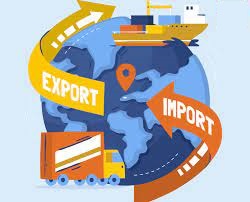 2023-05-17
2023-05-17
Exporting goods and services to international markets can be a complex process that requires compliance with various laws and regulations. One crucial aspect of international trade is obtaining the necessary export licenses. Export licenses serve as legal authorizations granted by the government to individuals or businesses, allowing them to export specific goods or services to foreign countries. In this article, we will explore the two primary types of export licenses and their significance in facilitating global trade.
1.General Export License:
A general export license, also known as a general license, is a broad authorization that permits the export of certain goods or services without the need for an individual application or approval from the government. This type of license is typically granted for goods that do not pose a significant risk to national security, public health, or violate any international trade agreements. General export licenses are commonly used for low-risk goods, such as consumer products, non-sensitive technologies, or commonly available software.
2.Advantages of a General Export License:
Streamlined process: With a general export license, exporters can skip the time-consuming process of obtaining individual licenses for each transaction, reducing administrative burden and facilitating smoother trade operations.
Cost-effective: General licenses eliminate the need for repetitive applications, minimizing costs associated with licensing fees, legal consultations, and paperwork.
Increased market access: By utilizing a general export license, businesses can quickly access multiple markets and expand their customer base without excessive regulatory hurdles.
3.Individual Export License:
An individual export license, also known as a specific license, is a customized authorization issued for the export of specific goods or services that fall under restricted categories. These licenses are required when exporting sensitive items, controlled technologies, military equipment, dual-use goods (goods with both civilian and military applications), or goods subject to international trade sanctions or embargoes. Individual export licenses are meticulously reviewed on a case-by-case basis by relevant government agencies responsible for export control.
4.Characteristics and Considerations:
Thorough evaluation: Each individual export license application is assessed based on factors such as national security concerns, potential for misuse, end-user verification, and compliance with international agreements or treaties.
Documentation and supporting evidence: Applicants must provide detailed information about the goods or services being exported, end-users, intended use, and the potential impact on national security or international relations. This may include technical specifications, contracts, end-user statements, and other relevant documentation.
Longer processing time: Due to the comprehensive evaluation process, individual export licenses generally take longer to obtain compared to general licenses. Exporters should consider this when planning their international trade activities.
5.Conclusion:
Export licenses play a pivotal role in regulating international trade and ensuring compliance with national security and international trade regulations. Understanding the distinction between general export licenses and individual export licenses is crucial for exporters seeking to navigate the global market successfully. By comprehending the requirements and processes associated with each license type, businesses can streamline their export operations, expand into new markets, and maintain regulatory compliance, thus fostering sustainable growth and contributing to the global economy.
enterprise-china will continuously bringing you cross-border information.












